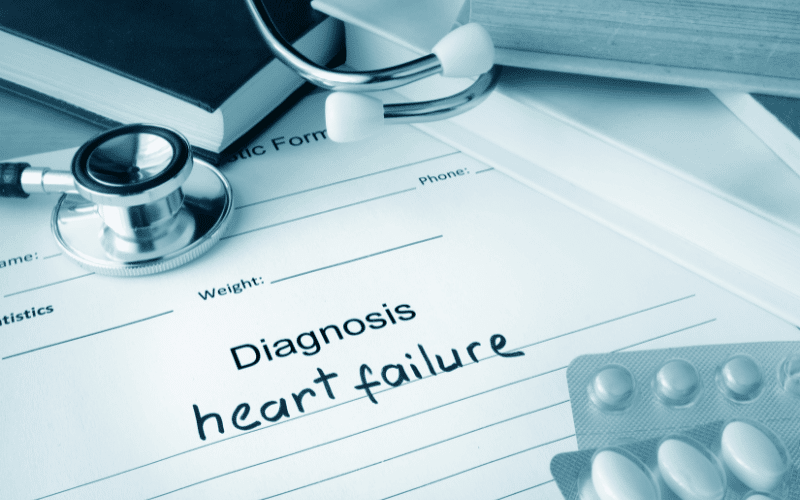Introduction: A Closer Look at Heart Failure

Heart failure, a term that often evokes fear, doesn’t signify the cessation of the heart’s function. Instead, it points to a scenario where the heart is losing the battle to sustain its routine workload. The gradual erosion of the heart’s pumping capacity results in the body receiving inadequate oxygen and nutrients. This article illuminates the 15 early signs and first symptoms of heart failure, drawing attention to the cues that warrant an immediate response.
Rampant globally, heart failure is not a standalone condition. It emerges as a complication of other health issues like coronary artery disease, high blood pressure, and diabetes. Several factors precipitate its onset, including age, obesity, and lifestyle habits like smoking and inadequate physical activity. It is a condition that doesn’t discriminate, impacting both sides of the heart, and without intervention, progresses with time.
There’s a silver lining, though. The progression of heart failure isn’t unstoppable. Early detection, combined with the right course of treatment, can slow it down. Knowledge, they say, is power. Recognizing the signs of heart failure empowers individuals to seek intervention at the right time, a decision that can remarkably improve the quality of life.
The human body is often a mystery, revealing its secrets subtly. Heart failure is no different. Its early signs and symptoms don’t arrive with a fanfare but manifest quietly and progressively. From persistent fatigue to edema, the body signals its distress, pushing us to pay attention. This piece is an endeavor to decipher these signs, offering insights that could potentially change lives.
Now, let’s delve deeper and decode the 15 early signs and first symptoms of heart failure.
Sign 1. Persistent Fatigue: The Quiet Alarm of Heart Failure

Feeling drained constantly, even after ample rest, could be the body’s way of waving a red flag. Fatigue, seemingly innocuous, is often the first sign of an impending heart failure. When the heart begins to falter in its pumping efficiency, the body instinctively diverts blood to vital organs. This rerouting causes a deficiency of oxygen and nutrients in other parts of the body, manifesting as persistent fatigue.
Most people brush off tiredness, attributing it to a hectic schedule or sleep deprivation. But when fatigue refuses to leave your side, it’s essential to read between the lines. Chronic tiredness, especially when it’s coupled with other symptoms, could be indicative of a problem larger than just physical exhaustion.
Contrary to popular belief, fatigue related to heart failure is not always proportional to physical exertion. People experiencing this symptom may feel drained even after minimal physical activity or an extended period of rest. Fatigue of this nature is not to be dismissed as general tiredness or lethargy. (1)